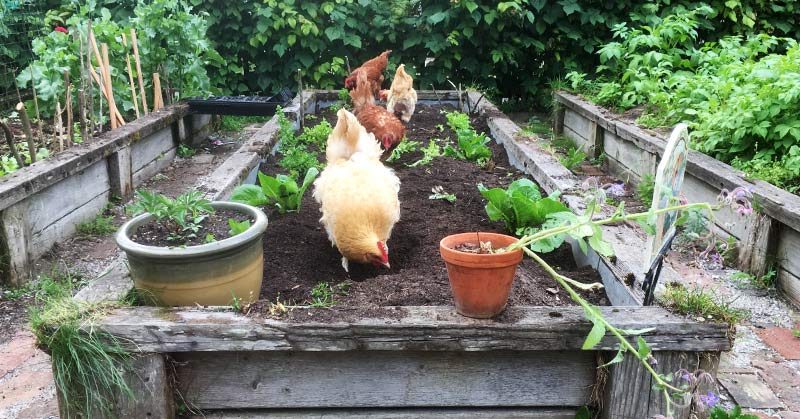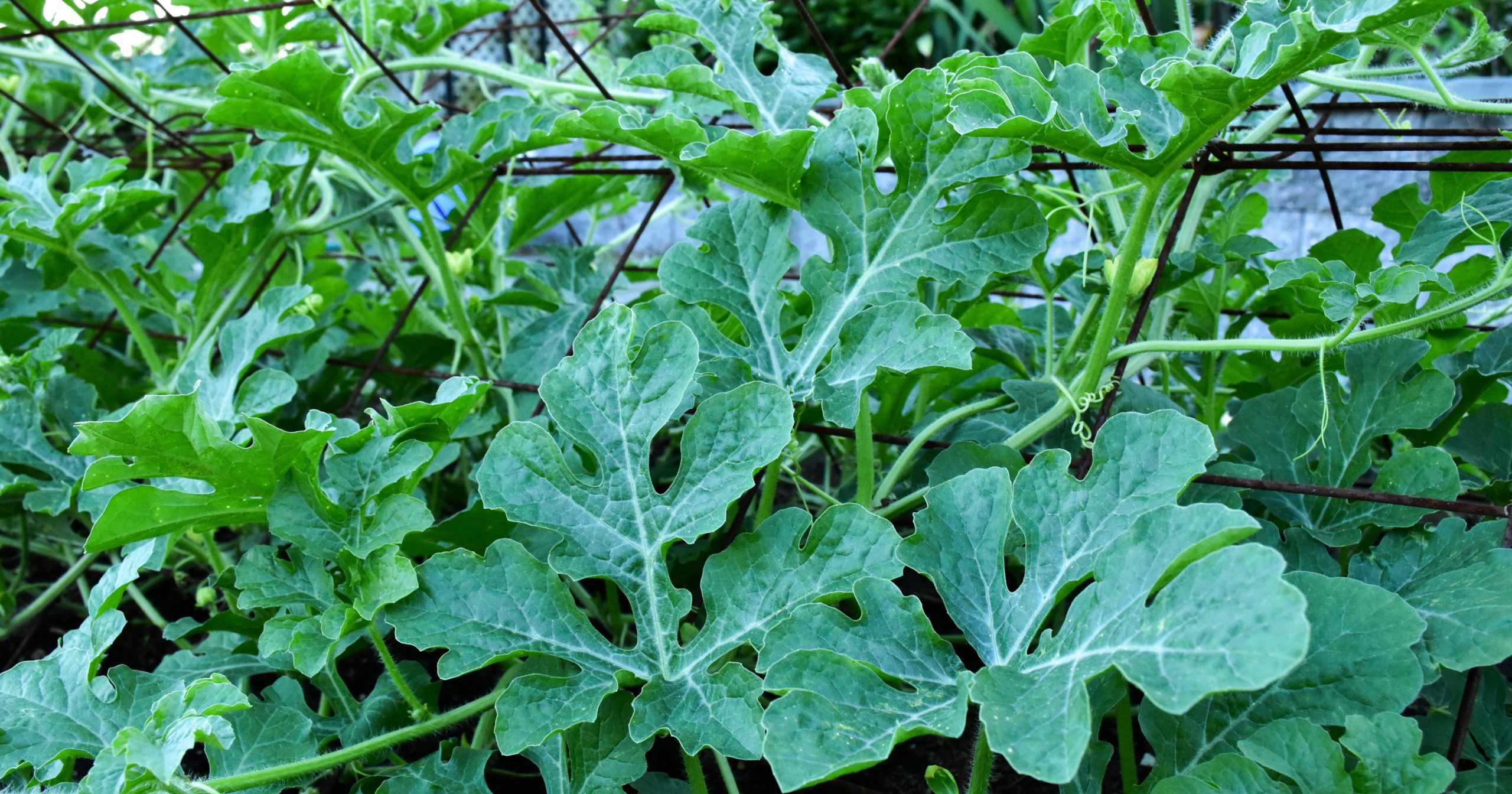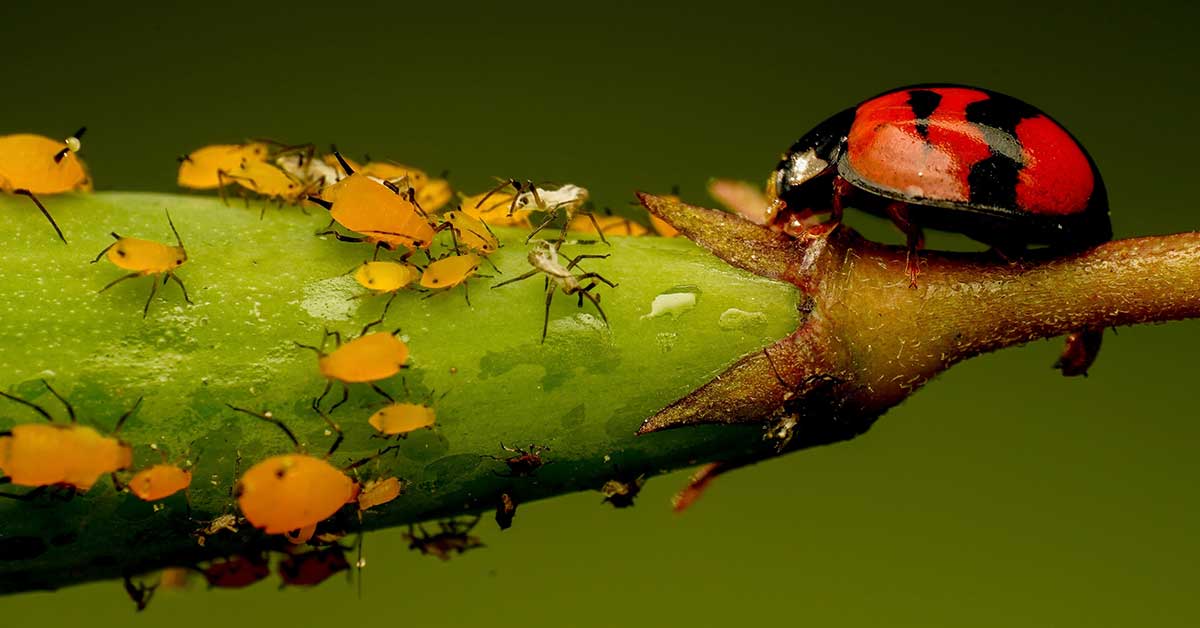If you love fresh produce and fresh eggs on your plate, growing a garden and keeping chickens is a pretty logical choice. There are few things better than going to the garden in the morning, collecting a few eggs from your hard-working hens, picking a tomato, zucchini, some spinach, and a few leaves of basil and making yourself the ultimate backyard breakfast scramble. But while these ingredients mix well, creating a delicious meal, chickens and gardens don’t necessarily get along. If you want your garden to be lush and productive, you’ll need to keep chickens out of the garden to the best of your abilities.
How to keep chickens out of the garden
In order to keep your garden safe from your chickens, you need to understand what your hens are all about. Taking a little bit of time to get in your chickens’ heads, so to speak, will go a long way.
Chickens are natural foragers. If you release them into the yard, you’ll see them slowly move around, scratching, pecking, and looking for delicious bugs and plants to eat. So when chickens see your garden, they see a delicious place to forage, and they wouldn’t be wrong! All of your fruits and vegetables would be a worthy snack for your hard-working, egg-laying ladies.
Unfortunately, chickens can’t be easily trained to come when called or stay out of certain places in your yard as you might expect from a dog or a cat. They play by their own rule book. If you want chickens to stay out of the garden, you need to take mitigating steps to prevent their invasion of your growing space.
Do plants repel chickens?
Planting a garden that chickens will avoid can help keep them away from your plants. Chickens are said to not like borage, calendula (pot marigold), catnip, chives, feverfew, lavender, marjoram, Mexican sage, peppermint and spearmint, rosemary, sage, salvias, St. John’s wort, tansy and yarrow. While some of these plants are edible for chickens in small amounts, they are generally not preferred. Borage and chives contain saponins which have a bitter taste to chickens and other livestock.
Calendula (pot marigold) and feverfew contain pyrethrum which can be toxic to chickens. Lavender and marjoram have a strong scent that chickens may not like and can also contain some toxins. Mexican sage has a scent that chickens may find unappealing, and peppermint and spearmint contain menthol which can be toxic if eaten in large amounts.
It’s important to remember that not all chickens are alike. Some may really enjoy pecking on these plants. Your mileage may vary with this strategy.
Setting up a chicken fence
Setting up a fence to keep chickens out of your garden can be a relatively easy process. The fence should be tall enough to prevent the chickens from getting over it. A good height is between 4 and 6 feet, though some types of chickens are light on their feet and can jump quite high. The fence should also be made of a material that the chickens can’t easily peck through, such as metal or wood.
It’s important to make sure the fence is securely attached to the ground. It’s also important to make sure there are no gaps in the fence. Chickens can squeeze through even small openings, so it’s important to check the fence regularly and fill in any gaps that may appear. Finally, a gate can be added to the fence so that you can access your garden without having to climb over the fence. Make sure the gate is securely locked when it’s not in use to prevent the chickens from getting in. With the right preparation and materials, setting up a fence to keep chickens out of your garden can be a relatively easy task.
Finally, a gate can be added to the fence so that you can access your garden without having to climb over the fence. Make sure the gate is securely locked when it’s not in use to prevent the chickens from getting in. With the right preparation and materials, setting up a fence to keep chickens out of your garden can be a relatively easy task.
If your chickens do fly well, you can clip their wing feathers to reduce how much liftoff they get when they do try to jump and fly. Check out the below video to learn more!
Don’t fight your chickens’ instincts
In general, if you try to stop unsatisfactory behavior by going against the nature of a creature, you’re going to have a bad time. The truth is, chickens have a handful of very specific activities they like to engage in. One of them is slowly moving across their range, scratching and pecking and eating as many delicious snacks as they can. You can’t exactly deprogram your chickens’ behavior, but you can work with your chickens instead of against them. Your chickens can actually greatly benefit your garden if you know how to use their powers for good!
One of my favorite ways of using my chickens’ natural tendencies for the benefit of my garden is with the chicken tunnel, or chunnel for short. A chunnel is a simple wire tunnel that allows the chickens to roam throughout your yard while still confining them, keeping them out of your garden. Chunnels can be easily positioned between garden beds, so your chickens get to enjoy your garden without harming your veggies. They’ll even do the weeding for you! You can expect that, wherever you place your chunnel, the chickens will peck it bare.
Set up a garden they can enjoy
My final piece of advice goes hand-in-hand with my last point. Fighting your chickens’ natural instincts won’t result in you having a good time or all that much success. If you’re having trouble with chickens in your garden, consider setting them up with their own garden! A chicken garden doesn’t need to be filled with expensive starts, but purchasing and mixing your own chicken forage seed packs is cheap and the chickens will love eating the goodies you grow for them and rolling around in the soil.
Keep Reading: How To Compost Chicken Manure













